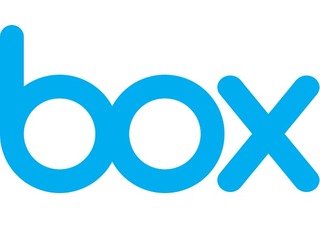Oxford Cancer Analytics raises $11M to detect lung cancer via a blood test
OXcan combines proteomics and artificial intelligence for early detection
Read more...
Dropbox made a big announcement on Monday: it now has 500 million users.
Obviously that's a pretty big milestone for the company, but the real question is what it means for Dropbox going forward. More specifically, will it go public?
The easiest way to break that down is to compare it to its closest rival, a company that had its initial public offering last year: Box. How do the numbers compare to when that company went public?
At the time of its IPO, Box had only 25 million registered users, a mere 5 percent of what Dropbox has right now. It also had 34,000 paying organizations, and while Dropbox didn't break that number out in its blog post, the company has 150,000 paying business customers as of November, 50,000 of which joined in 2015 alone, a spokesperson for Dropbox confirmed to me.
So, in terms of users, Dropbox is clearly far ahead of where Box was.
Box, however, had one clear advantage: the company was seeing over 2.5 billion content interactions every three months, or 10 billion a year. Dropbox, on the other hand, revealed that its users have created just 3.3 billion connections since the company was founded in 2007. While that is a 51 percent increase in the last year, it's still far less than what Box was seeing.
There is one other obvious metric that could determine whether or not Dropbox makes that leap: it's revenue.
While Dropbox is obviously not releasing any information about that right now, it should also be noted that at the time of its IPO, Box was seeing revenue rise, but net losses were coming up as well. The company lost $129 million in the nine-month period ending in October 2014, up from $125 million the year before. So maybe revenue isn't actually that important to its potential IPO plans.
The Box IPO
The biggest reason why Dropbox might want to wait this one out, though, is what happened to Box, both before, and after, it went public.
The company initially filed to go public confidentially in 2014, taking advantage of a provision in the Jumpstart Our Business Startup (JOBS) Act. Those plans were scuttled, however, due to a downturn in the market for public cloud software companies, including Workday, Veeva Systems and Xero, all of which saw their stocks dip.
It finally filed again with the SEC in January of 2015, putting its IPO plans back into motion. The company went public at a $14 IPO price, with shares rising 66 percent to $23.23, and the company raising $2.7 billion.
After that, it all fell apart, as investors balked at its underperforming earnings, as well as big shareholder sell offs.
Box's stock price fell below $20 a share in mid-February, only a month after it debuted, getting back to that level one time, in mid-March. It hit a low of $9.9 a share in February of this year, and while it has since bounced back a bit, the stock ended trading on Monday at $12.55 a share, it is still down over 10 percent year-to-date.
It is down 10 percent from its IPO price as well.
The other thing that will likely hold Dropbox back is the IPO market itself, which had an incredibly lousy 2015.
There were 169 IPOs, which raised $30 billion in 2015. Not only was that a 39 percent drop in volume, and a 65 percent drop in money raised, but numbers were the lowest since 2009, which was right in the heart of the recession.
Dropbox, however, may not be able to hold out that much longer without an IPO. Last year, one of its investors, BlackRock, cut its estimate of the company’s per-share value by 24 percent, as many unicorns suddenly began to see their valuations cut back down to size.
Ready or not, how much longer will Dropbox's investors wait to see a return on investment?
(Image source: dropbox.com)
OXcan combines proteomics and artificial intelligence for early detection
Read more...Nearly $265B in claims are denied every year because of the way they're coded
Read more...Most expect to see revenue rise, while also embracing technologies like generative AI
Read more...Startup/Business
Joined Vator on
Box provides secure, scalable content sharing that both users and IT love and adopt, including 82% of the FORTUNE 500. Box's dynamic, flexible content management solution empowers users to share and access content from anywhere, while providing IT enterprise-grade security and oversight into how content moves within their organizations. Content on Box can also be accessed through mobile applications, and extended to partner applications such as Google Apps, NetSuite and Salesforce. Box is a privately held company and is backed by venture capital firms Andreessen Horowitz, Bessemer Venture Partners, Draper Fisher Jurvetson, Emergence Capital Partners, Meritech Capital Partners, NEA, Scale Venture Partners, and U.S. Venture Partners, and strategic investors salesforce.com and SAP.



